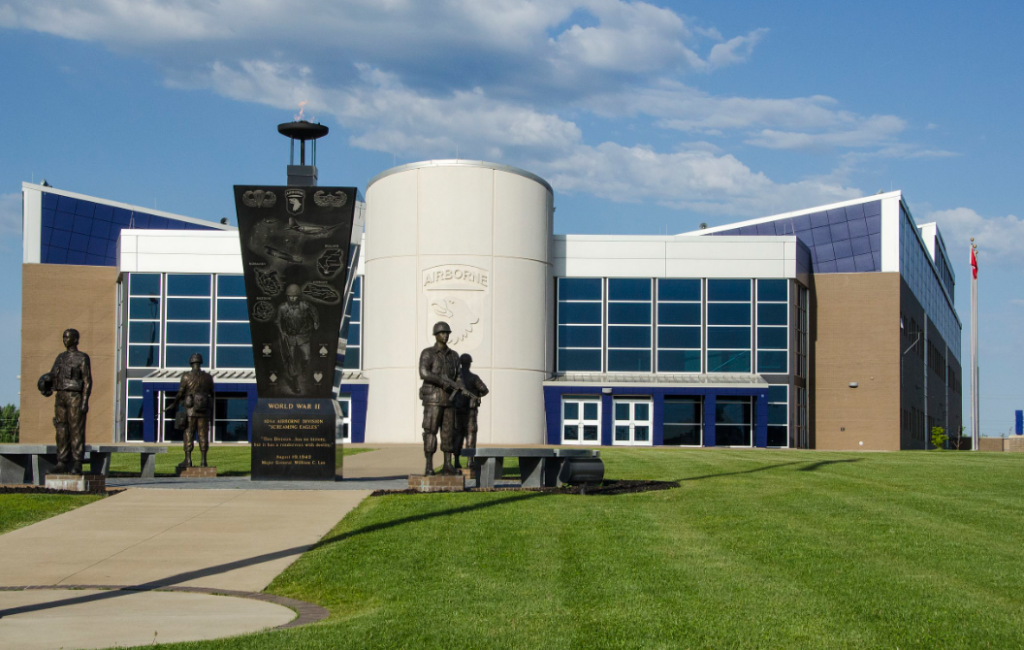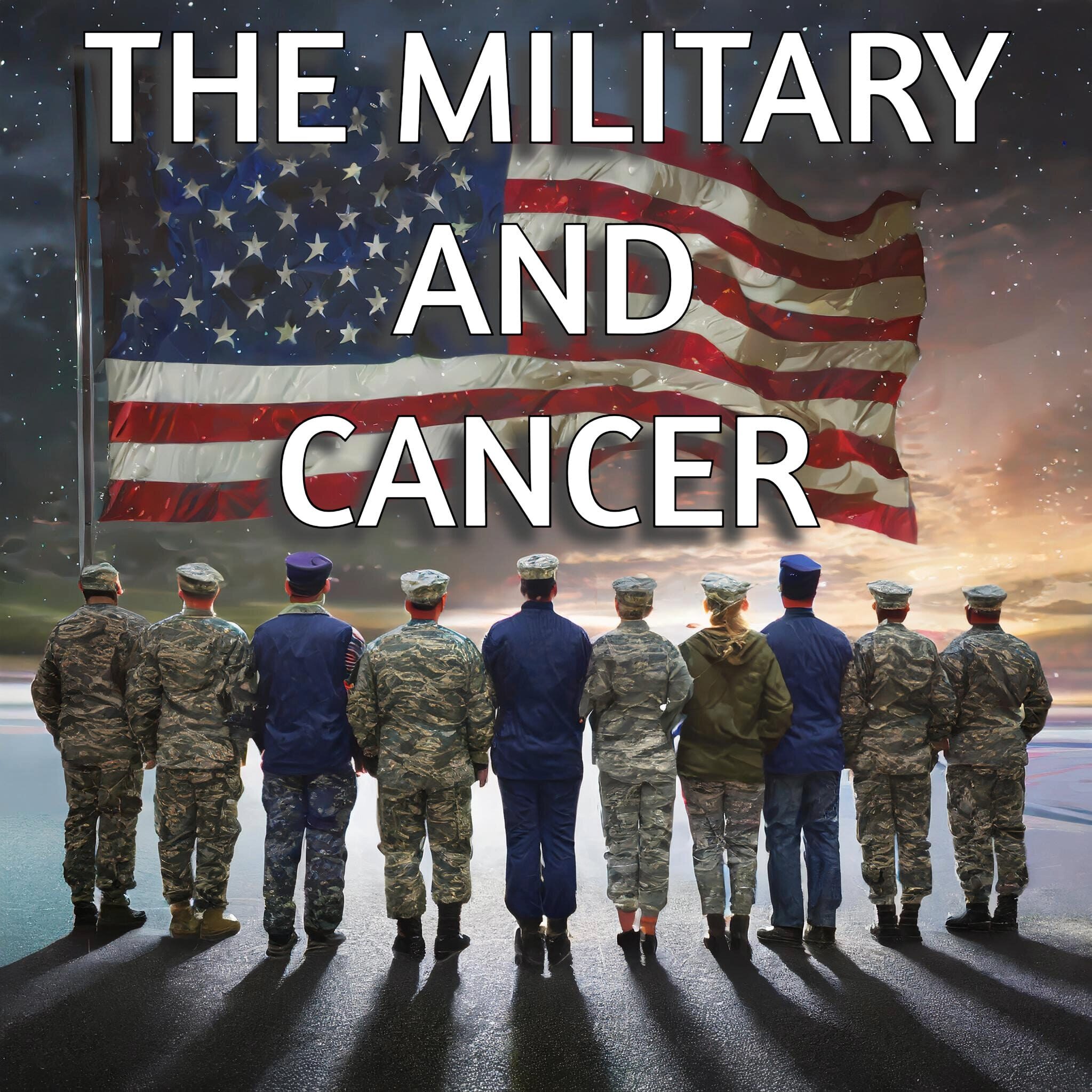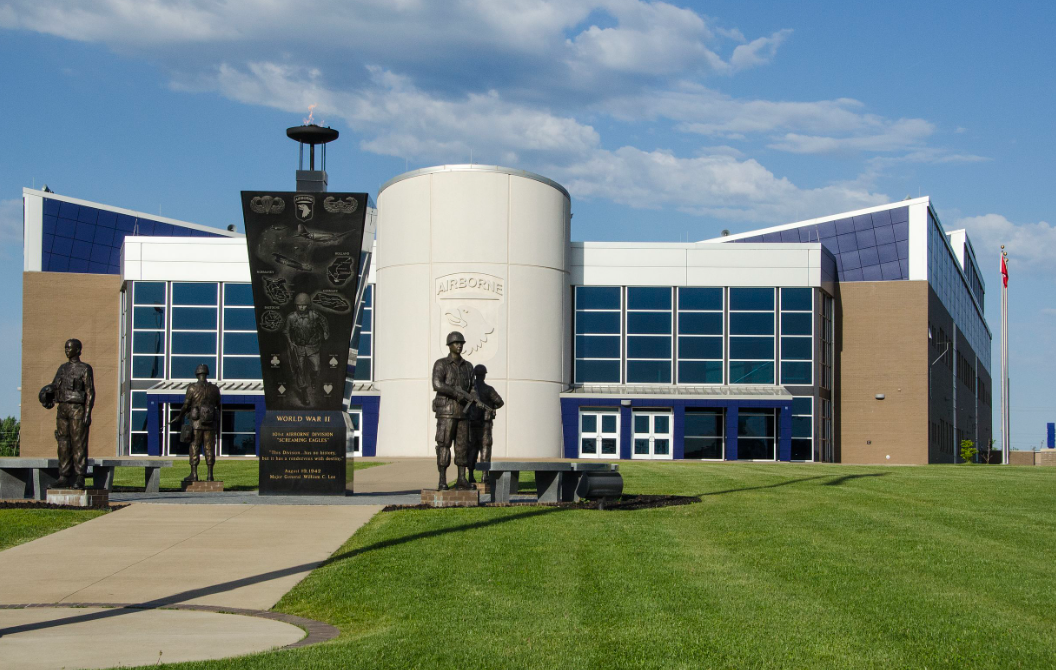
Fort Campbell, established in 1942, is a sprawling military base that spans across approximately 105,000 acres of land, across the Kentucky and Tennessee border. It is primarily home to the 101st Airborne Division, known as the “Screaming Eagles,” and the 160th Special Operations Aviation Regiment (SOAR). The base is strategically located near the town of Clarksville, Tennessee, and Hopkinsville, Kentucky, making it a vital hub for military operations, training, and deployment.
Key points about Fort Campbell:
- Training Center: Fort Campbell is a major training center for soldiers, offering various programs to prepare them for combat missions. The base hosts realistic training exercises and provides state-of-the-art facilities.
- Deployment: It has been a critical deployment point for U.S. military personnel, especially during times of conflict. Troops from Fort Campbell have been deployed to various global hotspots, including Iraq and Afghanistan.
- Community: The base has a significant impact on the surrounding communities, contributing to the local economy and fostering a strong military-community relationship.
Now, regarding potential health concerns for veterans who have served at Fort Campbell, it’s important to note that there have been concerns about environmental hazards and their potential link to certain health issues. However, it’s crucial to consult with healthcare professionals and refer to the latest research for the most accurate information. Some potential cancers that have been associated with military service and exposure to various environmental factors include:
- Lung Cancer: Exposure to airborne pollutants, such as burn pit emissions or asbestos, may increase the risk of lung cancer among veterans.
- Skin Cancer: Prolonged exposure to the sun, especially during deployments in desert regions, can increase the risk of skin cancer.
- Bladder Cancer: Some studies have suggested a potential connection between exposure to certain chemicals and an increased risk of bladder cancer in veterans.
- Prostate Cancer: While the exact causes of prostate cancer are not fully understood, there have been studies examining potential links between military service and this type of cancer.
- Leukemia: Exposure to certain chemicals or radiation during military service may be associated with an increased risk of leukemia.
- Multiple Myeloma: This type of cancer has also been studied in relation to military service, particularly in veterans who may have been exposed to hazardous substances.
It’s essential for veterans who have served at Fort Campbell or in any military capacity to monitor their health, undergo regular medical check-ups, and discuss any concerns with healthcare professionals. Additionally, the Department of Veterans Affairs (VA) offers various resources and services to support veterans’ healthcare needs and research on potential health risks associated with military service.


